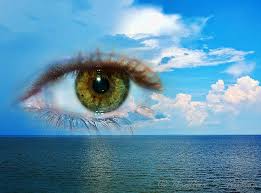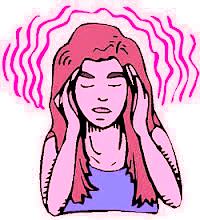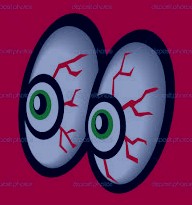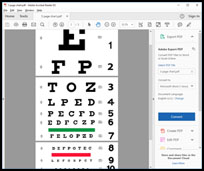Dr. Bates, the natural vision pioneer from the early 1900s, was often asked how much practice was needed to see an improvement in eyesight. He said you have as much time to see with poor habits which are hurting your vision, as you do to see with good healthy habits!

An end-gaining over-achiever like me could hear this and get completely overwhelmed. You mean I have to practice good vision habits the entire time my eyes are open? Yes! And that’s easier than you think.

First, whatever you’re doing, check in with your eyes. Do they feel relaxed, or are you straining, maybe starting to get a headache? Do you need a break, to go for a walk or otherwise get away from a stressful environment? If your mind is stressed, your visual system will usually be stressed too.

If you wear glasses, are you sure they’re not too strong? Eye doctors often over-prescribe, thinking they’re helping by giving you super-sharp sight. Then you wonder why wearing your glasses is a strain. Can you do some easy safe tasks without them at all? Or possibly an older weaker pair of glasses is more comfortable, and good enough for you to see what you need to see.

When doing a close task, like washing dishes, look at the details, the curvature of the plate or cup, the colors and design. Glance through the window to notice the scenery out there, letting your gaze travel over the view. Looking close won’t hurt your vision if 1) you take off your strong distance glasses to do it, and 2) it’s interspersed with looking far also. How often have you heard that you should take breaks to look in the distance when you’re at the computer? Healthy vision sees clearly up close and far away also. You need to let your brain experience both.

Much of “vision improvement” is merely starting to pay attention to your eyes, and to take care of them instead of taking them for granted. Are your eyes feeling tired and over-worked? Maybe it’s time to rest them with some palming or meditation or even a nap!
How’s your posture? If you’re slouching and slumping, the blood flow to your brain and eyes won’t be the best. Mom was right when she told you to sit up straight. And don’t forget about your nutrition and water intake. The brain and the eyes are mostly liquid. If you want to know more about the increasingly common condition of Dry Eye, you’ll find that here.
Finally, use your eyes to look, to notice, to examine. When I see that new car out the window across the street, I let my gaze play over the details of it, even though it’s not crystal clear on this rainy day. As I look longer, more of it comes into focus. I imagine the visual pathway of the light rays entering my eyes, traveling back through the optic nerve to my brain, that magic channel getting wider and more smooth as I continue to look and interpret.

If you don’t fully look and connect to what you’re seeing, you’re only skimming the surface. Look deeper, longer, not in a grabbing way but in a curious way. What is there? What could that be? Practice looking, and appreciating what you see, however blurry or clear it is. Start to realize when you don’t see so well, maybe when you’re tired or annoyed, and how much better you see when you’re peaceful and present. Human vision is a precious gift. Cherish it like the treasure it is.
I wore strong glasses, then contact lenses, from age 5 into my 40s. While making many mistakes, eventually l learned how to improve the way I use my eyes and to see in a more relaxed, healthy manner. It is my pleasure to coach others to do the same. Visit me at https://NancyLNeff.com.


“Sit up straight” can be improved, since aligning the body can also be done gently and attentively.
Thanks for commenting, Nancy, and I agree. I am seeing the forward-leaning posture around me more and more. I did not intend to force people to be rigid soldiers, just to raise their awareness of the importance of proper body alignment, so all our channels are open and our energy, including visual energy, can flow correctly.
glaucoma help
Hi — I haven’t written about glaucoma because I have minimal experience with it. The holistic optometrist who trained me used to advise glaucoma patients to look at where there was too much pressure in their lives, from a boss or marriage or finances or whatever, then see if they could reduce that. The vision system is not separate from the rest of the body and mind. I’d suggest palming to help your eyes and brain relax.
When palming, are your eyes closed or opened inside the palms? Thank you.
Tony, thanks for asking! Eyes should be closed during palming for maximum relaxation. If you follow the link in the post you’ll find all you need to know.